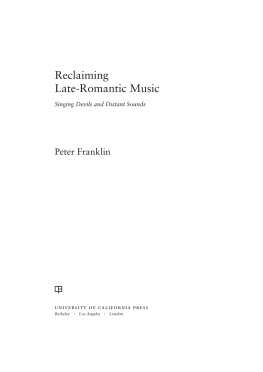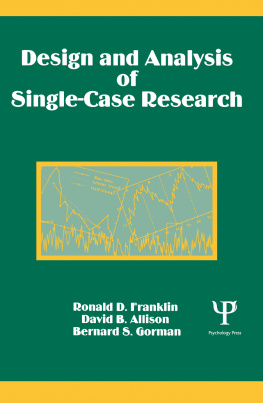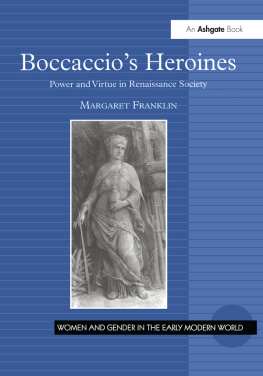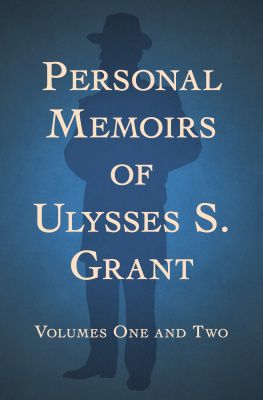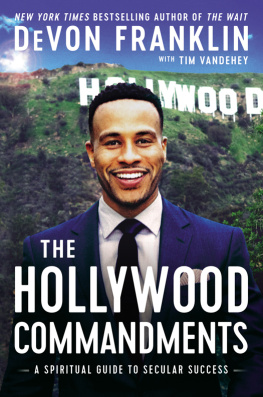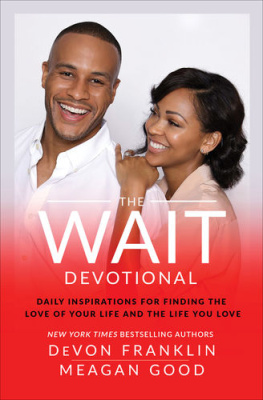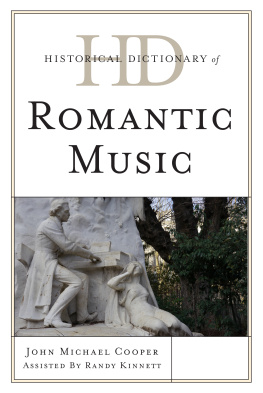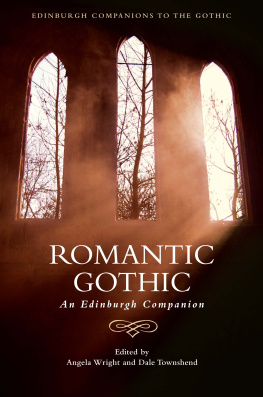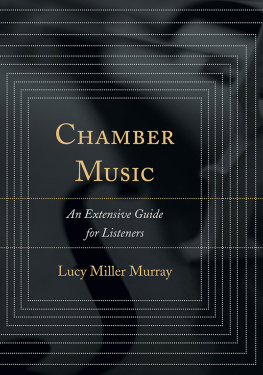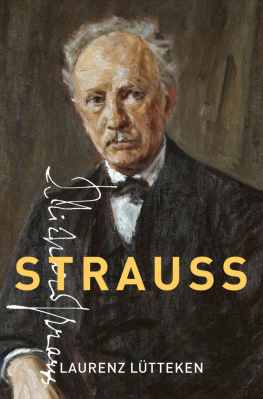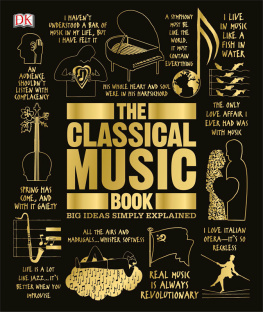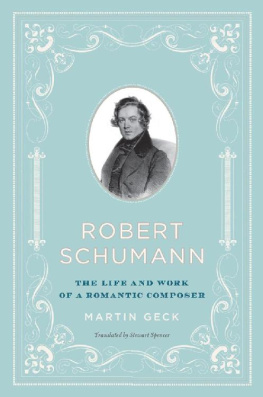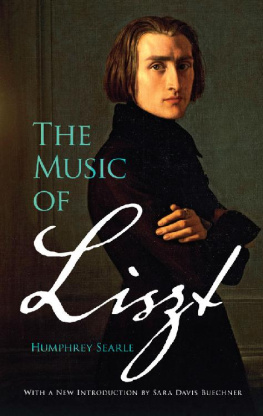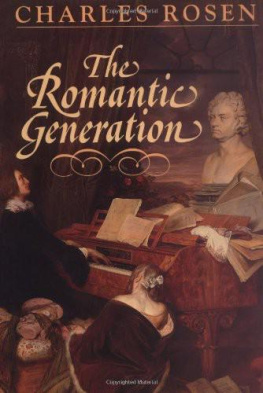

The publisher gratefully acknowledges the generous support of the Fletcher Jones Foundation Humanities Endowment Fund of the University of California Press Foundation.
Grateful acknowledgment is also made to the John Daverio Endowment of the American Musicological Society, funded in part by the National Endowment for the Humanities and the Andrew W. Mellon Foundation.
Reclaiming Late-Romantic Music

The Ernest Bloch Professorship of Music and the Ernest Bloch Lectures were established at the University of California in 1962 in order to bring distinguished figures in music to the Berkeley campus from time to time. Made possible by the Jacob and Rosa Stern Musical Fund, the professorship was founded in memory of Ernest Bloch (1880-1959), the first beneficiary of the Stern Fund and Professor of Music at Berkeley from 1940 to 1952.
THE ERNEST BLOCH PROFESSORS
| 1964 | Ralph Kirkpatrick |
| 1965-66 | Winton Dean |
| 1966-67 | Roger Sessions |
| 1968-69 | Gerald Abraham |
| 1970-71 | Leonard B. Meyer |
| 1972 | Edward T. Cone |
| 1975-76 | Donald Jay Grout |
| 1977 | Charles Rosen |
| 1979-80 | William Malm |
| 1980-81 | Alan Tyson |
| 1980-81 | Andrew Porter |
| 1983 | Ton De Leeuw |
| 1983 | James Haar |
| 1985 | Richard Crawford |
| 1986 | John Blacking |
| 1987 | Gunther Schuller |
| 1989 | George Perle |
| 1989 | Lszl Somfai |
| 1993 | Susan McClary |
| 1994-95 | Wye J. Allanbrook |
| 1995 | Jonathan Harvey |
| 1997 | Lydia Goehr |
| 1998 | Izaly Zemtsovsky |
| 1999 | David Huron |
| 2002 | Roger Parker |
| 2003 | Steven Stucky |
| 2005 | William Bolcom |
| 2007 | Martha Feldman |
| 2008 | Steve Mackey |
| 2009 | Steven Feld |
| 2010 | Pedro Memelsdorff |
| 2010 | Peter Franklin |
| 2011 | Fred Lerdahl |
| 2013 | George E. Lewis |
| 2013 | Martin Stokes |
| 2014 | Georgina Born |
Reclaiming
Late-Romantic Music
Singing Devils and Distant Sounds
Peter Franklin

UNIVERSITY OF CALIFORNIA PRESS
BerkeleyLos AngelesLondon
University of California Press, one of the most distinguished university presses in the United States, enriches lives around the world by advancing scholarship in the humanities, social sciences, and natural sciences. Its activities are supported by the UC Press Foundation and by philanthropic contributions from individuals and institutions. For more information, visit www.ucpress.edu.
University of California Press
Berkeley and Los Angeles, California
University of California Press, Ltd.
London, England
2014 by The Regents of the University of California
Library of Congress Cataloging-in-Publication Data
Franklin, Peter, author.
Reclaiming late-romantic music : singing devils and distant sounds / Peter Franklin.
pagescm.(Ernest Bloch lectures)
Includes bibliographical references and index.
ISBN 978-0-520-28039-7 (cloth : alk. paper)
eISBN 978-0-520-95803-6
1. Music19th centuryHistory and criticism.2. MusicPhilosophy and aesthetics.I. Title.
ML196.F732014
780.9034dc232013031179
Manufactured in the United States of America
22 21 20 19 18 17 16 15 14
10 9 8 7 6 5 4 3 2 1
In keeping with a commitment to support environmentally responsible and sustainable printing practices, UC Press has printed this book on Natures Natural, a fiber that contains 30% post-consumer waste and meets the minimum requirements of ANSI/NISO Z 39.481992 ( R 1997) ( Permanence of Paper ).
This book is dedicated to my maternal grandmother, Lily Salmons (ne Phillips, 18781944), whom I never met, but who brought up six children, survived the London Blitz before evacuating to Chesterfield (where she died of cancer), and was, in her youth, a much-loved maidservant.
Contents
Illustrations
Introduction
Each member of the audience sits alone, listening to the work of the great, dead composer.
Christopher Small, Musicking
Imagine, then, the hushed throng in a large European concert hall, waiting upon the conductors signal to an orchestra ranked in glittering array before him, in the nineteenth-century fashion. Perhaps, like Christopher Small, we should be suspicious of this curious social ritual, apparently celebrating power and heroic mastery before a docile mass of habituated admirers. recall this music more complex and multifaceted than our social disclaimers appear to allow.
The title of this book itself engages such things with enigmatic phrases that deliberately inspire further questions. What is late-romantic music? How romantic, and how late? And what, exactly, might we seek to reclaim it from? The still more or less current umbrella term late-romantic is familiar enough, in a colloquial sense, yet has been contested by specialist scholars (the German musicologist Carl Dahlhaus denounced it as a terminological blunder of the first order). For many it will nonetheless evoke a particular sound and style of large-scale European orchestral and operatic music from the late nineteenth and early twentieth centuries, the kind of music that would sing its last long song in classical Hollywood film scores. Perhaps its lateness comes from its origins in the late nineteenth century, not least in the Germanic musical style and type of listening experience that was developed in the music dramas of Wagner and subsequently carried forward by his successor Richard Strauss. But there is more to say, and other composers and repertoires to refer to: Russian, Italian, French, and Eastern European, for examplealso English and American.
In the end we might have to accept that it is difficult to define the term in any more concrete, style-orientated musicological way, for all that it received disciplinary validation from the excellent 1991 Man and Music volume, edited by Jim Samson and simply called The Late Romantic Era: From the mid-19th Century to World War I. challenge the very terms in which existing definitions have been couched.
For example, in art history late often denotes the period in an individual artists, or even a cultures, development that just precedes its endperhaps in some sort of Indian summer like that in which Verdi produced Otello and Falstaff around the turn of the century. It may be late in the sense that it reflects the glories of earlier achievements or times. Which gives rise to the secondary association of lateness with decline, with decadence (albeit not in Verdis case). One of the most recent authors to have attempted to confront the wider field of musical production and reception with which I am concerned here, and with ostensibly similar reclamational intent, is Stephen Downes, who opted precisely for the negatively charged term decadence in his book Music and Decadence in European Modernism. Where Dahlhaus wanted simply to replace late romanticism with modernism, Downes seems to problematize the mythic narrative that is implied in his title, where the latter term has a more positive, or at least more neutral charge in comparison with decadence to which it is often contrasted as if in a sort of developmental binary (out of the declining glories of decadence Modernism was born, we are told).
Next page
